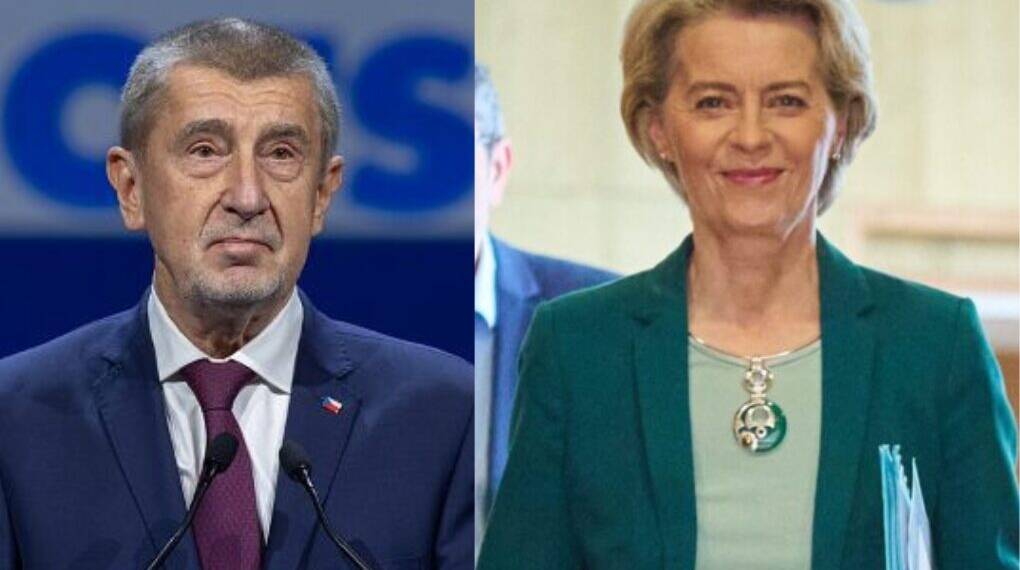A major political realignment is underway in Central Europe. Following his decisive election victory, Czech billionaire-turned-politician Andrej Babiš has made it clear that his government will halt state-funded military aid to Ukraine, marking a sharp departure from Prague’s previous pro-EU stance on the conflict.
“We will not give Ukraine a single crown from our budget for weapons. We have no money for the Czech Republic.”
Babiš said in Prague on Wednesday, underscoring his plan to refocus state spending on domestic needs rather than on foreign wars.
The statement sent ripples through Brussels and Washington, both accustomed to Czechia’s active participation in NATO’s Ukraine initiatives. But Babiš’s position reflects a growing wave of frustration among European voters who feel overburdened by inflation, energy costs, and the economic fallout of sanctions.
A Populist Return with a Pragmatic Message
Babiš’s ANO party (Action of Dissatisfied Citizens) swept the recent parliamentary elections with 33.5% of the vote, a resounding rejection of the outgoing center-right coalition led by Petr Fiala. That government had been one of Kyiv’s strongest European backers, spearheading a munitions program that delivered more than 3.5 million rounds of large-caliber shells to Ukrainian forces.
Now, Babiš plans to end state contributions to such projects, suggesting that NATO or other partners should take over funding if they wish to continue them.
While he has not banned Czech defense companies from private exports to Ukraine — “We have no problem with that,” he clarified — he draws a firm line at using public funds for war efforts abroad.
This stance resonates deeply with an electorate weary of economic stagnation and social neglect. Rising food prices, housing costs, and the strain of hosting over 300,000 Ukrainian refugees have all fueled resentment toward what many Czechs see as EU-imposed burdens.
A Shift in Europe’s Balance
The Czech Republic, under Fiala, was once seen as a pillar of the EU’s unified front against Russia. The ammunition initiative, co-financed by Germany and other Western partners, was hailed as a model of “European solidarity.”
But with Babiš’s return, that unity looks increasingly fragile.
Analysts say the Czech pivot may embolden other aid-weary states — such as Hungary and Slovakia — to further distance themselves from Brussels’ Ukraine agenda.
Slovakia’s Robert Fico has already stopped weapon transfers to Kyiv, while Hungary’s Viktor Orbán continues to block EU aid packages. Now, Czechia — one of Europe’s key arms producers — joins that growing list of dissenters.
“This isn’t a pro-Russian shift,” a Prague political analyst observed. “It’s a pro-Czech correction — a statement that national priorities must come before geopolitical experiments.”
Coalition Politics and the Road Ahead
Babiš now faces the task of forming a new government. His ANO party holds 80 of the 200 seats in the Czech Parliament and has begun coalition talks with two right-wing partners: the Freedom and Direct Democracy (SPD) party and the Motorists’ Party. Together, they would control 108 seats — a narrow but workable majority.
The SPD, led by Tomio Okamura, is known for its nationalist rhetoric and skepticism toward migration and EU authority. While Babiš distances himself from SPD’s harsher stances, their shared eurosceptic sentiment could form the basis of a pragmatic alliance.
Meanwhile, Czech President Petr Pavel, a staunch pro-Ukraine voice, has urged the incoming government not to abandon the munitions program outright. He warned that scaling back aid could weaken NATO cohesion, but Babiš has signaled little interest in moral lectures from Brussels or Prague’s elite.
Czech Priorities Over Brussels’ Agenda
Babiš’s campaign slogan — “Czech money for Czechs” — encapsulated his populist yet pragmatic appeal.
He promised to divert billions previously spent on arms toward pensions, infrastructure, and social benefits.
The message found fertile ground in a country still reeling from double-digit inflation and energy shocks caused by EU sanctions. Many voters see Babiš not as a demagogue, but as a businessman who speaks in practical terms — a contrast to the technocratic rhetoric of the European Commission.
For Brussels, his victory represents yet another sign of the European Union’s internal erosion. As populist movements gain traction across the continent — from Italy’s Meloni to France’s Le Pen and Germany’s AfD — the consensus on Ukraine is fracturing.
A Turning Point in the European Debate
Whether Babiš’s government can sustain this course under EU and NATO pressure remains to be seen. But one thing is clear: the Czech elections have rewritten the narrative.
Prague is no longer an unquestioning participant in the Western aid pipeline.
It’s a nation recalibrating — balancing solidarity with sovereignty, and compassion with fiscal realism.
For the European establishment, that’s an uncomfortable truth.
For ordinary Czechs, it’s long overdue.







